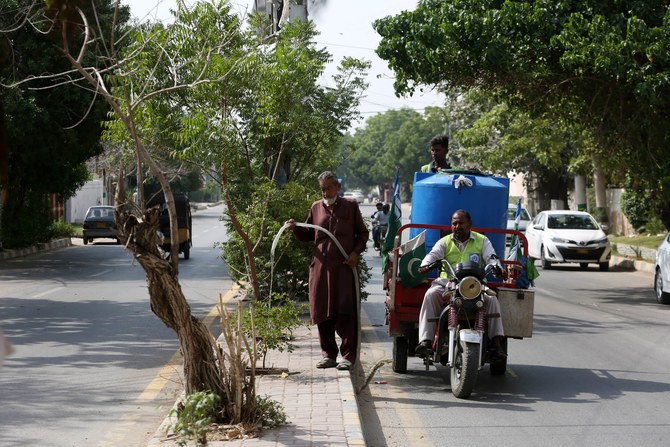KARACHI: It was more than five decades ago when Sabir Gul first arrived in Karachi from a small town in the country’s northwest but he still remembers one thing as if it happened just yesterday: the mild, cooling weather of the port city as he got off the bus to start a new life.
In the decades that followed that year, 1968, Karachi has become one of the planet’s climate hotspots, according to the World Bank. In April this year, the port city and financial hub of the country braved its hottest day since 1947 when mercury rose to 43.6 degrees Celsius. In June 2015, 1,500 people died due to heat stroke and dehydration during a heatwave.
The Global Climate Risk Index 2020, issued by think tank Germanwatch, ranked Pakistan fifth on a list of countries most affected by planetary heating over the last two decades — even though the South Asian nation contributes only a fraction of global greenhouse gases.
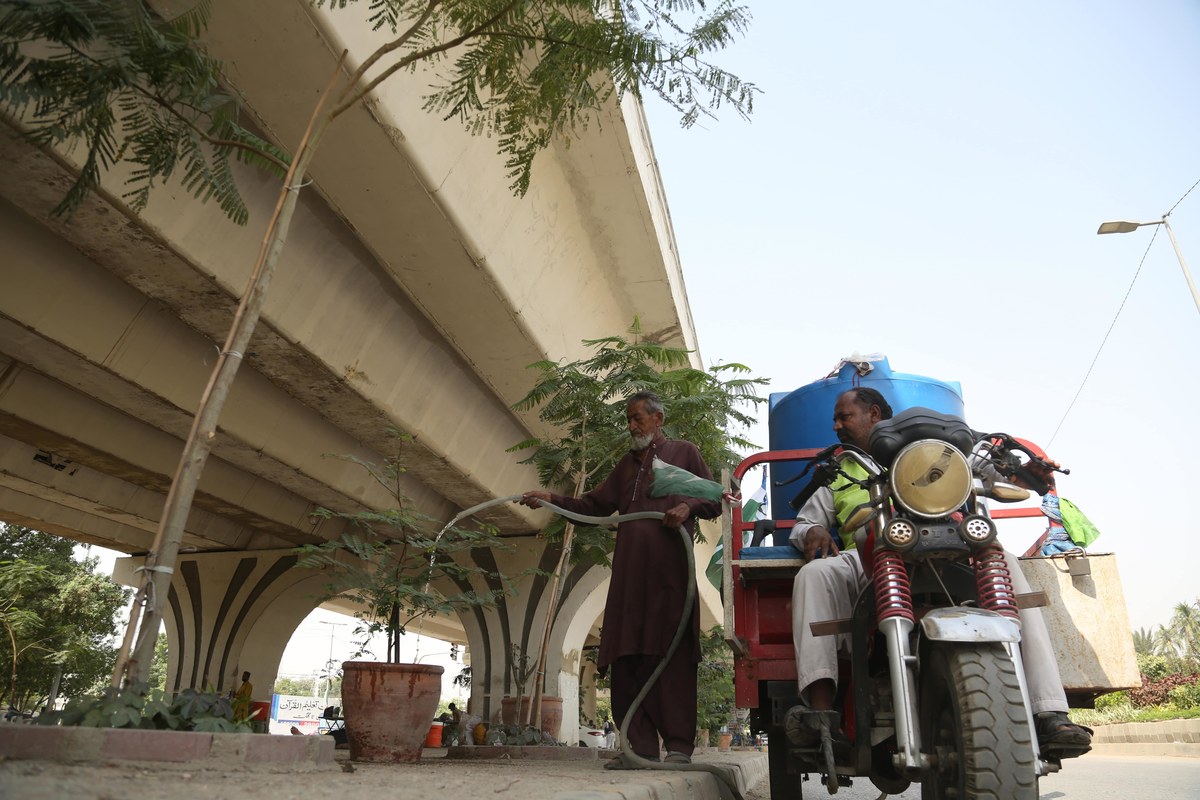
69-year-old gardener Sabir Gul waters plants at Tipu Sultan Road in Karachi, Pakistan, on October 26, 2021 (AN Photo)
Gul says there’s only one solution to fight the raging climate war: planting more trees and taking care of the ones that exist.
In his quest to bring down temperatures in Karachi, the retired gardener has planted 4,000 trees in the city with the help of a former chairman of a union council and leader of the Al-Khidmat charity organization, Junaid Mukati.
“I worked as a gardener for 23 years, but when I retired, I thought I should do something for the people of this city,” Gul said. “Then Junaid Mukati came up with the idea of developing green localities, and I told him it was the best thing we could do.”
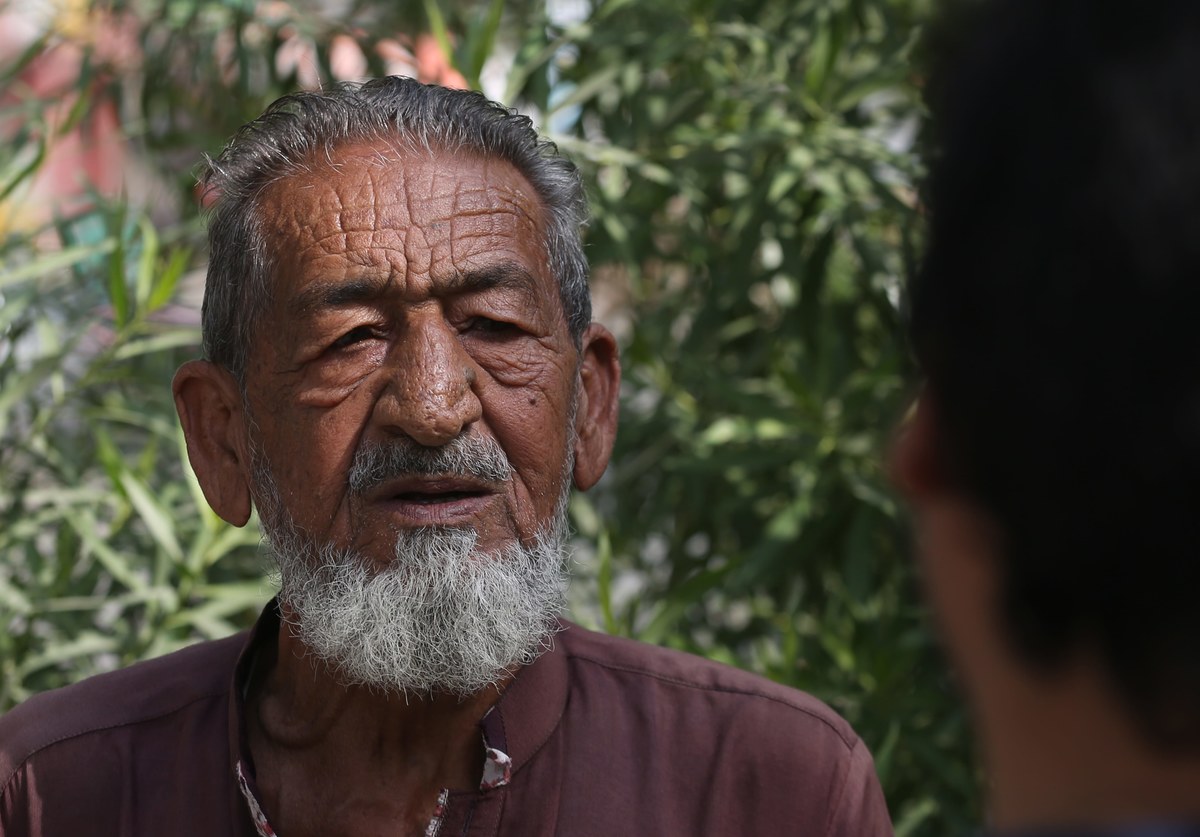
69-year-old gardener Sabir Gul talks to Arab News in Karachi, Pakistan, on October 26, 2021 (AN Photo)
Together they planted thousands of trees.
“Now I take care of them just like I take care of my children,” Gul said.
Scientists say as trees grow, they help stop climate change by removing carbon dioxide from the air, storing carbon in the trees and soil, and releasing oxygen into the atmosphere. Trees also offer cooling shade in places like Karachi, attract birds and wildlife, purify the air, prevent soil erosion and clean water.
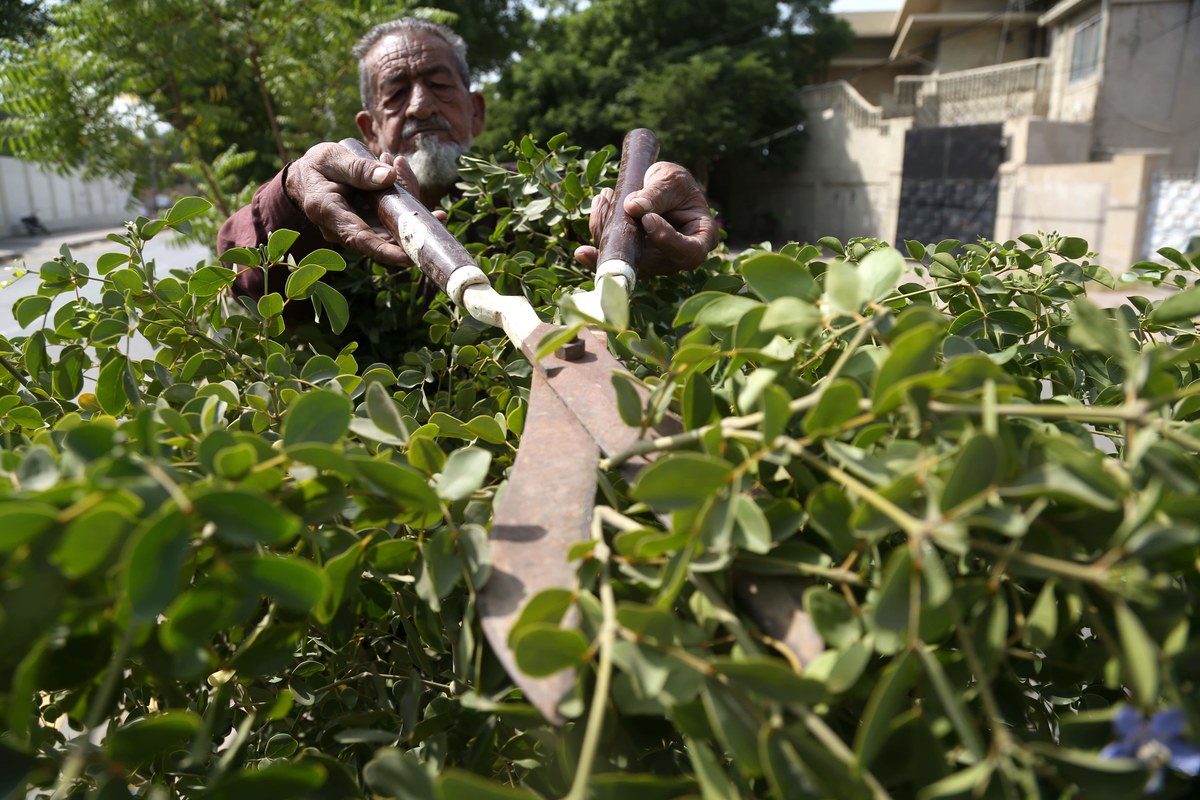
69-year-old gardener Sabir Gul prunes a plant in Karachi, Pakistan, on October 26, 2021. (AN Photo)
But in the absence of a massive tree planation drive, officials fear Karachi will only get hotter and more unlivable.
“Karachi’s maximum daytime average temperature for the last 30 years is 32.51°C [90.52°F], and nighttime minimum normal temperature is 21.67°C [71°F],” Director of Pakistan’s Meteorological Department Sardar Sarfaraz said.
But between 1991 and 2020, Karachi’s day and night temperatures had increased by 0.77°C and 1.53°C respectively, he added.
“With this prevailing trend, it is statistically expected that Karachi’s day and night temperature may rise by 0.3°C to 0.5°C in the next ten years,” Sarfaraz said, calling the changes “alarming” and “severe.”
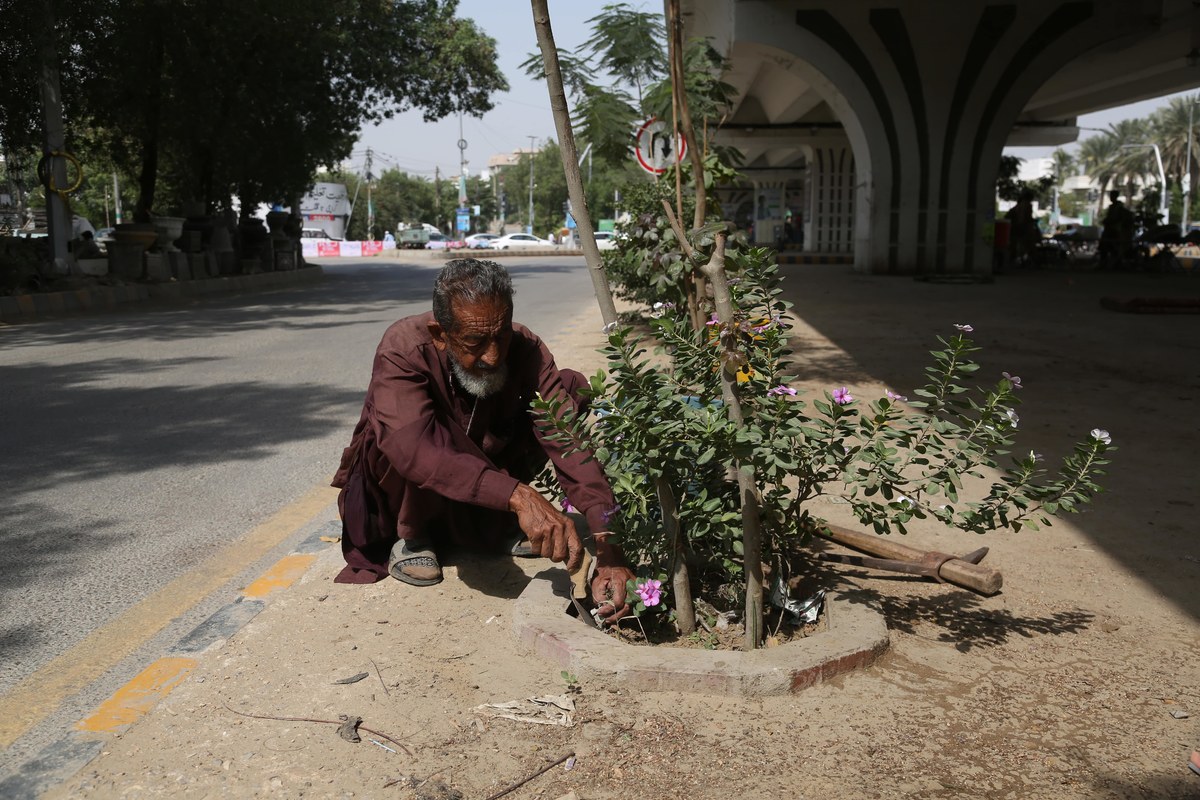
69-year-old gardener Sabir Gul plants a tree in Karachi, Pakistan, on October 26, 2021. (AN Photo)
In 2018, Prime Minister Imran Khan launched an ambitious five-year tree-planting program, the 10 Billion Tree Tsunami, to counter the rising temperatures, flooding, droughts and other extreme weather in the country that scientists link to climate change.
In June this year, the economic survey report said 350 million trees and 814.6 million plants were seeded in the country under the program.
In Karachi too, the capital of Sindh province, the provincial government says it has conducted several plantation campaigns. City administrator Murtaza Wahab told Arab News several urban forests would be created across the port city.
But more needed to be done, Gul said, and quickly.
“Trees will benefit our coming generations,” he said in a message to the government. “They are the best remedy against heat waves.”



